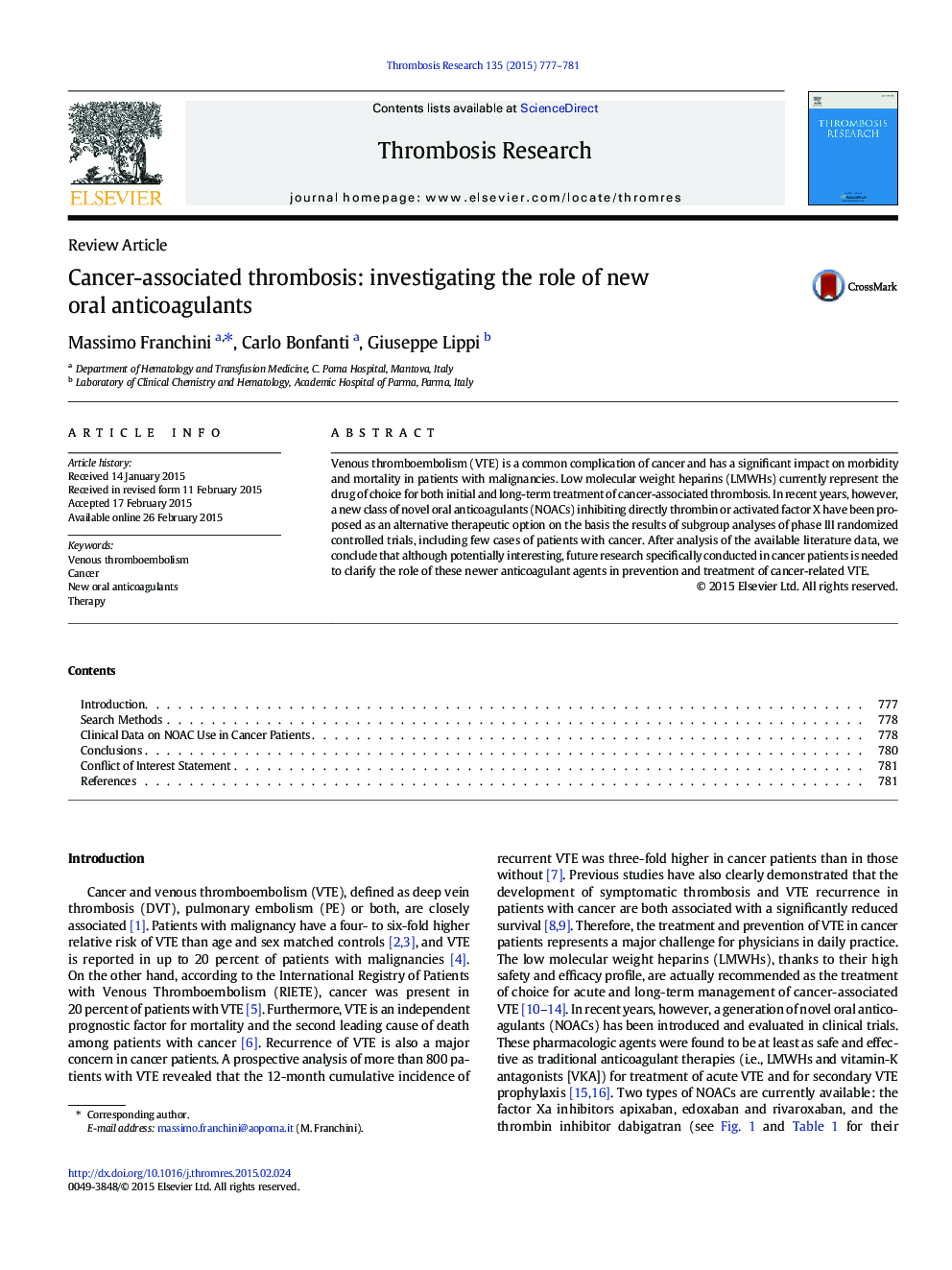| Article ID | Journal | Published Year | Pages | File Type |
|---|---|---|---|---|
| 6001541 | Thrombosis Research | 2015 | 5 Pages |
â¢Cancer patients are at increased risk of developing VTE.â¢NOACs are a potentially attractive option for anticoagulation in cancer patients.â¢The lacks of published data currently limits the use of NOACs in cancer patients.
Venous thromboembolism (VTE) is a common complication of cancer and has a significant impact on morbidity and mortality in patients with malignancies. Low molecular weight heparins (LMWHs) currently represent the drug of choice for both initial and long-term treatment of cancer-associated thrombosis. In recent years, however, a new class of novel oral anticoagulants (NOACs) inhibiting directly thrombin or activated factor X have been proposed as an alternative therapeutic option on the basis the results of subgroup analyses of phase III randomized controlled trials, including few cases of patients with cancer. After analysis of the available literature data, we conclude that although potentially interesting, future research specifically conducted in cancer patients is needed to clarify the role of these newer anticoagulant agents in prevention and treatment of cancer-related VTE.
